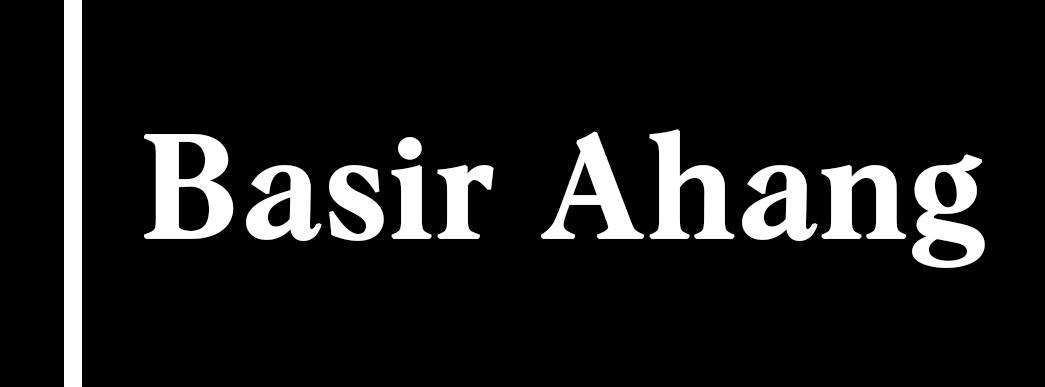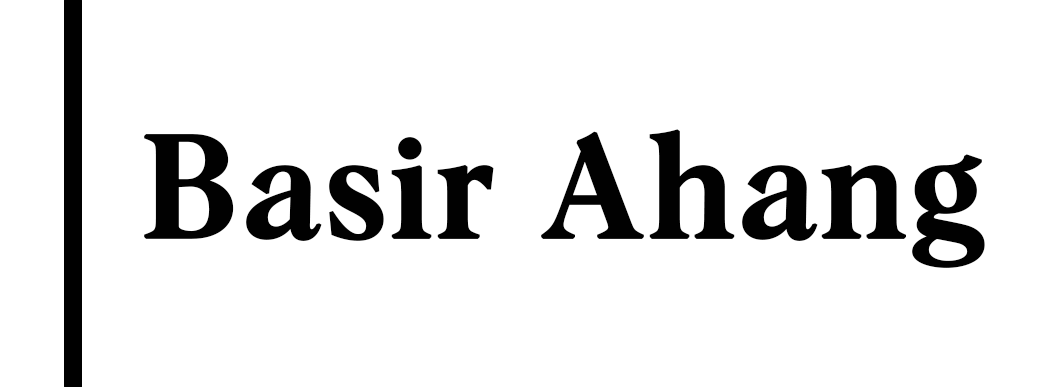Good evening to everybody! I would like to purpose you this time an interview with Basir Ahang, an Afghan journalist and political refugee in Italy. Basir has realized a documentary “The Voice of Patra” about the conditions of the Afghan refugees in Greece, has worked as an interpreter and cultural mediator and is involved in project aiming in capturing the attention on its people and expecially on the third ethnic group of Afghanistan, the Hazara, victims of violence and persecutions. What else could i say? Enjoy the interview and stay tuned!
1. We hear speaking about a dialogue with the Taliban, the United States are increasing the tensions with Pakistan, the International coalition does not show clear ideas; how do you consider the current situation of Afghanistan and how do you think it will evolve after the end of the Western military operations?
Basir Ahang: In 2001, when the international forces entered in Afghanistan one of the declared goals was to fight terrorism. In that moment, the Taliban were called with their name, terrorists, also because of their ties with Al-Qaeda. The 90% of Afghanistan’s territory was under Taliban’s control, but the western coalition was able to destroy their regime in just 27 days. The situation improved and the population really believed that peace was at hand. After Karzai and his team of Taliban in bridle took the power there was the opening of new scenery with the growth of internal conflicts; from the moment on the Taliban could use their power “legally” and keep on enforcing their ties with the Pakistani agency ISI, Saudi Arabia and the drug dealers.
Slowly, also the terminology used by the media and the politicians to describe the Taliban started to change and they started to be called simply rebels or insurgents. Karzai, Faruq Wardak, Education minister and special political advisor of Karzai, Karim Korram, former Culture minister and now leader of the President’s Cabinet, Anif Atmar, former Internal Affairs Minister have all played an important role in bringing the Taliban back to power, by defining them often “our brothers” in virtue of their common pashtun ethnic group. Politicians of other ethnic groups as Tajikistan, Uzbeks and Hazara, who were against the return of Taliban, have been kept out of the political scenery. Now, the Taliban stand in the Parliament, in the police forces and in Karzai’s offices.
The “peace negotiations” between the Afghan government, the international forces and the Taliban, which have started with London’s conference on the 28th of January 2010, have reinforced even more the terrorists, whose now maintain an undisputed control in almost all of the Afghanistan’s provinces, except Bamyan, Daykundi, Panjshir and some northern regions. These talks have been conducted with the only aim to save the face at the moment of the international forces’ departure from Afghanistan in 2014. The time is running out and the Afghan population fear more than everything else the arrival of the day when the international forces will leave the country. At this point, there will be two probable sceneries: an undisputed return of Taliban’s regime or a civil war.
Which is the true role of Pakistan in the Afghan context, according to you?
Basir Ahang: The role of Pakistan in Afghanistan’s context has been unfortunately remarkable. The creation of Taliban itself occurred in Pakistan, where terrorists were and keep on being produced in Peshawar training camps and in the border territories between Afghanistan and Pakistan, in order to be sent in the world or to be used in the place. The same government of Afghanistan is under Pakistani control, keeping strong relations with this country and Karzai himself, when he lived in Quetta, took the Pakistani citizenship. There is another element of conjunction between the two countries, the so called pashtunwali, an ethical code which beyond the definition of behavioral norms, aims at the maintenance of an undisputed domination of the Pashtun ethnic group above all the others.
If the international forces will not care more about the dangers deriving from the terroristic groups in Pakistan and Saudi Arabia, this will not be a problem just for Afghanistan, but for the whole world. The real nuclear danger today it’s not Iran, but Pakistan, a country with a lot of terrorist groups in its territory, such as the Haqqani Network, the Lashkar-e-Jhangvi (LeJ) and the Sipah Sahaba Pakistan (SSP), with its 17 international cells spread also in unsuspected countries such as Canada and Great Britain.
You have realized some time ago a reportage about the conditions of the Afghan refugees in Patra “The Voice of Patra”; which is the current condition of Afghan refugees in Greece, Italy and in the rest of Europe?
Basir Ahang: The condition of the Afghan refugees in Greece unfortunately worsens day by day. If until some years ago their situation was already dramatic because of the lack of every fundamental right and the attacks of fascist and Greek policemen, now with the economic crisis that is wasting the country, their condition has even more got worse. Whole families with kids don’t have any place where to stay, and they sleep in public parks, facing the cold and the violence. I have written many articles about this topic and I have addressed many appeals to the organizations protecting children’s rights, but it all ended up in nothing. Also other countries, such as the Netherlands, Germany, Norway, Sweden and Australia have begun to deport directly in Afghanistan even the under age. For what concerns Italy, it’s true that it does not offer rights and leave often the refugees on the streets, but it’s true, at least, that that’s able to ask for political asylum is rarely rejected. Anyway, the increase of the rejection has its explanation; the Kara government is concluding deals with some countries, such as Australia, to repatriate people and it’s even spreading false voices in order to convince that the Hazard people does not risk any danger in Afghanistan; all of this occurs because the government fears , with reason, that the millions composing the Hazara Diaspora spread in the world could educate themselves, becoming a force able to influence from the exterior the country’s politics and consequently put in discussion the undisputed Pashtun’s hegemony.
2. What can you tell us about the scarcely discussed and dramatic condition of the Hazara people?
Basir Ahang:The Hazara people constitute the 67% of the whole Afghan population before the XIX century, but since 1882 until 1890 more than the half of them were exterminated by the King Abdul Rahman Khan. Today it’s believed that the Hazara constitute the 22% of the population, even if because of the census’ lack it’s difficult to establish the precise number of them. Anyway, the story of the Hazara covers a very long period of time and it would be necessary a whole book to tell their affairs. Referring to the current times, the Hazara condition meet less space in the debate because of the government’s effort to censor any information about the massacres and the discriminations towards this ethnic group. In 1993, during the Mujaheddin wars, the Hazara were victims of an authentic genocide. The major tragedy occurred in the zone of Ashfar, located in the west of Kabul, where in just two days were killed more than 7 000 civilians and 2 500 women were first raped and then sold as slaves. The responsible of this massacre were Burhanuddin Rabbani, Ahmad Shah Massud, Abdul Rab Rasul Sayyaf, now member of the Parliament and Ayatollah Muhammad Asif Muhsini, currently leader of the “Islamic Movement of Afghanistan” party (Harakat-e Islami-yi Afghanistan). Since 1999 until 2001, the Taliban instead were the ones carrying on the genocide, declaring the destruction of the Hazara to be among their aims; the massacres that need to be remembered here are the ones of Mazar-Sharif, Bamyan, Baghlan and Ghazni. Bayman’s Buddhas were also destroyed in order to erase the symbols of Hazara’s history and art. Today millions of Hazara live in various parts of the world, where they hope to conduct a pacific life and where many of them study and work in order to build a better future in Afghanistan.
Do you think that the Western intervention had increased the internal conflicts in Afghanistan?
Basir Ahang: No, the Western intervention had not increased the internal conflicts in Afghanistan. All the ethnical groups, except the Pashtun sustain the presence of the international forces, because they know that as soon as it’ll come the time of their retreat, the Taliban will take back the power and the situation will completely crumble. The Westerners unfortunately have never understood the reality of the country and they have always given trust to the dominating ethnic group, ignoring the fact that the other ethnic groups have always been against the Taliban and their return.
Which are the actors that could really express a role in the current Afghan scenery?
Basir Ahang: At this point, I think that it’s already too late to improve the situation. The only thing that we can do is trying to influence the internal politics of Afghanistan by the exterior with the force and skills of the Diaspora’s Afghans. One of the options on which we are working is federalism. Afghanistan is a multi-ethnical country indeed and only a federal state could create the necessary conditions so that everybody could live in peace without oppression and ethnical discrimination. In fact we believe that as the United States chose federalism in order to avoid a civil war, also Afghanistan could decrease the ethnical tensions which are lacerating the country trough the creation of a federal State. In the past, it could have made instead something really simple in order not to influence in a negative way, in Afghanistan, by not influencing it at all. Afghanistan has always been a game’s theater for the foreign powers which have actually influenced its present, past and future; Great Britain and the Soviet Union begun to do so, today it’s the time of the United States with other Western countries , Great Britain above all the others.
The importance of creating a new economy for Afghanistan it’s often forgotten; how it could be possible in front of the undisputed opium’s cultivation?
Basir Ahang: Millions of dollars have been spent for the war in Afghanistan; if a quarter of that money would have been spent for the reconstruction and the economy we would have many less problems today. Beyond that, it should be remembered that Karzai government grants money to the provinces and the regions according to the ethnical group of the inhabitants, so we have regions populated by Hazara disposing of less of 2% of the national budget for the economic development. An example of it its Daikundi region, to which have been granted 4.500.000 dollars for the agriculture improvement, while millions of dollars have been granted to Kandahar. The opium cultivation it’s already part of Afghanistan policy, and until members of the underworld and Taliban will remain in power no one could change this tendency. The economic improvement is strictly linked to justice’s condition; without it, there can’t be development.

